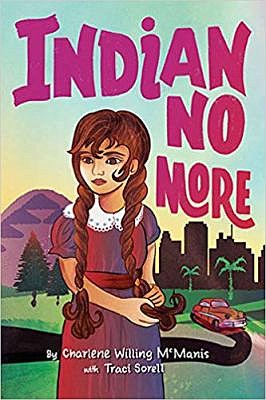In the 1950s, the U.S. government decided to do away with Native American sovereignty.
They virtually erased the native tribes' identity, dissolved the tribal governments and took away many of the rights promised them through treaties of the past. Tired of coping with the "Indian problem" and eager to assume land promised to the native nations in the form of reservations, the U.S. government instituted the Indian Relocation Program. This program provided promises of a better way of life that included better schools, better paying jobs, a community of Indians so those relocated could retain their culture. The program also included one way tickets to the relocation destination and often times some startup money to help those that were moving to get on their feet.
As the people of the Indian nations decided to leave, the government bought up their land. As with all the promises made to the Native American people, these promises did not pan out.
What they found instead was poor paying jobs, the schools were no better and a devastating loss of culture. Many were unable to afford to move back to their homeland and most had no home to go back to as the government snatched up their lands on the reservation faster than anyone could imagine. All of this forced a cycle of poverty that still exists today.
"Indian No More" by Charlene Willing McManis and Traci Sorell is about Regina Petit, a member of the Umpqua tribe who has lived on the Grand Ronde reservation in Oregon all her life. Her father decides to take advantage of the relocation program and moves their family from their reservation in Oregon to Los Angeles.
The book chronicles the difficulties the family encountered, especially the grandmother who mourned the loss of her way of life after the move. Regina misses her family, their traditions and the open air and nature that was all around her on the reservation. Most of all, she misses her true identity and the traditions of her tribal family that have nothing to do with the stereotypes found in Los Angeles.
The fact that both authors of this book are Native American lends an authentic voice that is often missing in books about Native Americans. Charlene Willing McManis was of the Umpqua tribal heritage. The novel is based on her family's experiences during the Indian Relocation Act. When McManis found she had a terminal illness, she approached Traci Sorell, another native author, to complete the editing process of the novel and see it through to publication.
While written for the middle grades, this book is an education for all on the treatment of the native people of the United States and should not be overlooked.
Lisa Cartee is a children's clerk at the Missouri River Regional Library.

